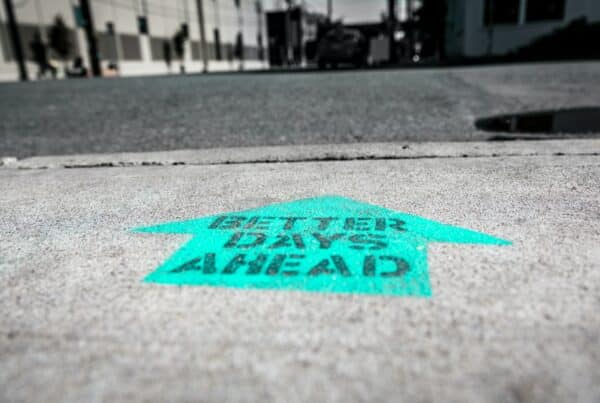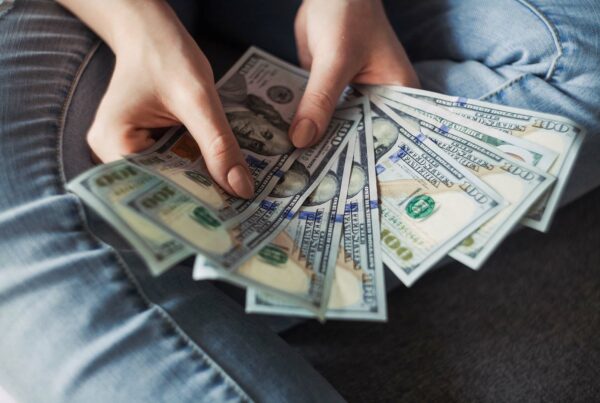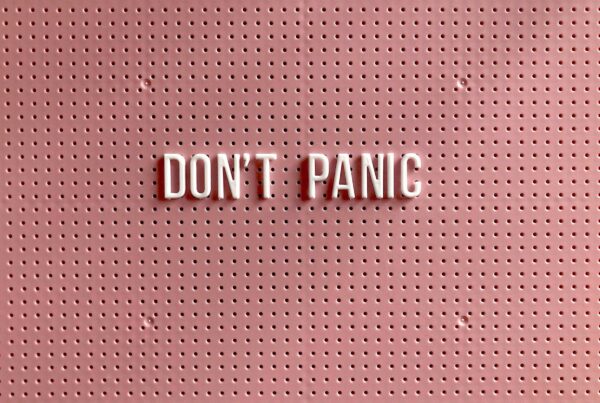“Lifestyle Creep” haunts many as the world reopens after the COVID-19 pandemic. I have a simple solution for you.
Lifestyle creep is as real as it gets. We have all been there at one time or another. Your wealth grows or your costs diminish, and the next thing you know – that shiny new (insert your object of desire here) seems *gasp* – affordable.
But is it really affordable? Or are you just allowing yourself to succumb to plain ole’ lifestyle creep?! This is the other side of money shame. We want to believe we can afford nice things – and we can, within a set budget of course – but sometimes we are too eager to rush into new expenses. As such, we instantly negate the positive effects of our wealth growing or our costs diminishing. Back on the hamster wheel.
You are not alone in your Lifestyle Creep

We missed these things. A lot.
But one side effect many enjoyed was the increase in our bank accounts when all the small purchases stopped, and we suddenly realized how much we spend eating in restaurants and buying makeup wandering through Target on our lunch break.
I am so grateful that the tide is turning, and we can get back to being around people. We get to make choices about what invitations we accept instead of a mandate shaping our get-togethers.
Changing our behaviors after so many months of playing it safe and being around people again is an adjustment. Some of us are still wary of group settings. While the slow pace of 2020 was hard on many with mental health issues, others enjoyed the break from too many commitments and demands on their time.
Wake Up Call
If you found that the extra money in your account helped you prioritize saving or the stimulus payments helped you pay down debt, you may have some mixed feelings about getting back to “normal” financially too. You may be motivated to keep some aspects of pared-down living on your terms.
Lifestyle creep—the tendency to buy more things and inflate our expenses as our salary increases—is a very real thing. And while this past year was many things, it was also a reset button.
The reasons we spend can easily deviate from our larger goals.
Last year shook some who felt like their jobs were secure. Maybe you knew your spending was a little loose before, but didn’t prioritize saving until you had an unexpected loss in income.
Even if you had been saving for a rainy day, the past year was a jolt—wait, I wasn’t actually going to use that emergency fund. Who thought a steady job like mine could be furloughed?
If you were one of the lucky ones who maintained a job, you still probably felt nervous about the future. Is working from home a step in the process towards reducing headcount? The economy was unpredictable. You pulled back on your spending (easier from home) because you didn’t know what to expect next month.
Takeaways
Not everyone is out of the woods yet, but there is more optimism about the coming months.
While we want to move on, we shouldn’t waste the lessons 2020 gave us. We’re all ready to get back to normal in our work and our social lives, but now’s the time optimal time to make decisions about what you don’t miss from 2019. What are some of the expenses that you can pass on to avoid lifestyle inflation when normal life makes a comeback?
These are the categories of spending that I argue we should look at with fresh eyes:
In Search of Lifestyle Creep Enlightenment
It’s easy to spend money on a journey to find your “thing” or your tribe. Crossfit junkie, old car aficionado, paraglider, ski bum.
While any one of these hobbies is expensive, if you are constantly “trying on” new experiences in search of adventure, you will quickly sink money each time you invest in a new exclusive hobby.
And it’s a convenient excuse to “upgrade your lifestyle” (e.g. lifestyle creep). After all, this is about “who you are” and your identity – right? And thus you should have a free pass to spend more money on this kind of thing, yeah? Well… no!
Ask yourself, Why you are always in search of your next thrill? Are you hooked on the adrenaline of doing something new and edgy? Or trying to fill a void in your life with a new purpose. While relationships are beneficial to our health, new things can not fulfill us the way meaningful connection with people can.
If you are trying to establish an identity by trying on new personas, who are you trying to impress? I spent years and lots of money playing the big shot because I felt like if I didn’t offer to pay for dinner or treat everyone regularly, my place among my friends wasn’t secure. My lavish spending in front of friends was an attempt to hide my own money insecurities.
I now know that if you are looking for a feeling of camaraderie and belonging, a social network doesn’t require big spending. While specialized activities are a way to meet new people, changing course on a regular basis undermines the connection you are trying to forge.
We all want social connection, and when we find meaningful relationships, our emotional being, material needs and health can benefit. If asked to recount a meaningful or particularly fun time in your life, it will likely revolve around other people to whom you feel close.
But it’s hard to be close to others when we are constantly on the run from our own insecurities or trying to impress. You build a wall when you are hiding behind a persona.
Being a good person
I would even go so far as to say that sometimes people fall into the trap of giving money to avoid connecting in a more meaningful way. When we don’t have time to contribute but we want to show our support to a worthy cause, we run our credit card. Maybe it helps us feel like we are doing something while keeping us from getting our hands dirty with the real work.
When you do decide to give money to a cause, it’s often more effective to give a larger amount to one cause than to give a small amount to several. This is due to the transactional cost of each donation. If you give $10 to 10 different groups, each group will pay a fee to their bank for that deposit and also man-hours for managing those transactions individually. From a psychology angle, a bigger donation also makes you feel more connected to one non-profit organization. Your gift makes you a bigger donor and you may become more involved with them in other ways.
If you are constantly being hit up for donations, it’s ok to save your dollars for a bigger donation to the group that is most meaningful to you. Buy the box of girl scout cookies from your neighbor, but tell the others who come to your door that you have already budgeted your donations for the year. It’s ok to say no sometimes.
The good news for your wallet is that if you want to do good and find meaning, many non-profit organizations rely on and welcome volunteers. Instead of always forking over money, a combination of your funds and your time may be more meaningful for both of you. If the food bank is asking for donations, ask if they need help unpacking boxes. The animal shelter may need someone to walk dogs. You get the idea.
Social Life
What if you don’t have expensive hobbies or feel compelled to funnel your money into causes you can’t really afford? We all love to spend time with the people that make us happy, and sometimes this morphs into spending big money on annual trips, regular dinners out, or whatever your crew likes to do. Lifestyle creep strikes again!
We have missed opportunities to connect during COVID, but I think we have also been forced to find alternative ways to connect other than going out to expensive dinners. Maybe having the neighbors over for wine on the porch is a habit you will continue instead.
Pandemic times taught us something about frugality. If you didn’t cook before, you may be an expert bread maker now. Hopefully you have learned something about entertaining yourself without spending. Cooking, cleaning, gardening, taking more walks…these are all low-cost and often provide a practical benefit that could even lower your grocery or maintenance bills.
Now that the world is opening up, you may have more invitations to travel, try out the new restaurant, and visit the mall. I know I’m dying to do some of these things again, but I’m also wary of making them a habit for my checkbook.
If you struggle with how it will look if you try to maintain a simpler lifestyle, there are many other reasons to cut back aside from saving money.
Rethink your wardrobe
If you want to spend less on clothing, your reason may be that it’s more eco-friendly to skip the shopping spree. Fast fashion is the name for the inexpensive, trendy clothing you can pick up season after season at retailers like H&M and Forever21. 85% of all textiles make their way to the dump each year, and the cost of producing a steady flow of new pieces to consumers in the name of quick profits is huge water consumption and 8-10% of the annual carbon footprint.
Add to this the questionable human rights practices in countries where clothing is assembled to feed the fast fashion industry, and there are more reasons to rethink that deal on a shift dress.
Of course you still need clothing. In the 1960’s, 90% of what Americans wore was made in the United States. Today it’s just 3%, fueled by a market for cheaper and more, more, more.
If shopping is your thing, consider vintage or thrift, which you can even find online now. Rethink shopping as entertainment. Suggest that everyone meet for a clothing swap instead or take a pottery class together or visit a new exhibit. You get the idea.
Eating out
Eating at home or hosting a dinner party instead of a fancy night out is not only better for your wallet, but also your health—unless you have spent your COVID time baking brownies. At home, you can control the ingredients and you would rarely “finish” dishes with butter or extra creamy sauces as they would in a restaurant. You can control portions.
A rotating dinner party is a great way to try and share new recipes and a chance to source ingredients locally, if that is important to you. You may enjoy the hands-on experience of growing your own food, decide to share in a CSA, or initiate a weekly girls’ trip to your closest farmers market. Any of these options give you the side benefits of social interaction and nutritious, in-season produce.
When you eat together at home, you don’t need a reservation and no waiter will be rushing you out the door to free up your table. You can add more people easily. You can linger for drinks or game night. If you still aren’t sure about being in a packed restaurant, what a great excuse to host a backyard dinner.
Your crowd
Peer pressure is a big contributor to lifestyle creep. If your friends are spendy or your gatherings tend to only happen while shopping or at trendy restaurants, only you can decide if your bond with these people can still survive without the spending.
The people you spend your time with shape who you become. If lunch is always comparing lavish vacations and what upgrades everyone has done to their house, consider whether the friendship is healthy for you.
It could be that your friends aren’t the problem. A lot of times, we do the same thing because no one wants to take the initiative to plan (other than reservations). Suggest something new. If the idea of dinner parties doesn’t appeal, you could suggest a weekly tour of all the little coffee shops in town or meet for wine on the patio.
Someone else in the group will probably be relieved that you suggested it. People spend out of habit and don’t speak up because they don’t want to imply that the friendship is unimportant or rock the boat. Down-grading the cost of your time together doesn’t need to mean you are down-grading the relationship. Others are likely playing a role to be included, and a new environment may change the vibe for the better.
If you are near mountains, go hiking. If you are near water, go to the beach. Find the attractions in your area that you would send a visitor to see but you never take the time to do.
Social Media
Time in isolation has led to more time for pining over Instagram. This is harmless fun when you are catching up on your nephew’s baby pictures. But too much social media can give us all FOMO, and for many this fuels feelings of isolation. In turn, we crave a better life – and lifestyle creep begins to set in.
An instagram feed is an embellished view, and scrolling through everyone else’s adventures can make you feel like you are the only one stuck at home, especially now that things are opening back up. While it’s fun to post selfies from amazing vacation destinations, it can also make you feel like your fun times don’t count unless they are published for the world.
While you scroll instagram or facebook or whatever your favorite social media, you are also inundated with targeted marketing. Shampoo specially formulated for fine hair, concealer perfect for your skin, a bathing suit sale on that site you clicked on once—it’s another trigger for spending at a time when you may already be feeling a little low from being stuck at home while your coworker is posting pictures of rafting the Rio Grande.
On the other hand, social media gives us unique opportunities to connect with others working their way out of debt who may have tips on cutting back, budgeting, or finding deals. It helps you connect with local groups of gardeners, walkers, find religious activities, healthy recipe swaps, pet meetups…whatever you might be interested in.
Next time you scroll through social media, pay attention to the feelings that follow. If you can leave with a new recipe and move on with life, great. But if you log off feeling like everyone is hanging out without you or you can’t stop looking at new houses—because your life would be better if you could just live there—it may be time to take a hiatus.
Neuroplasticity – You Are in Control of Lifestyle Creep
Psychology has a huge impact on how you spend your money. It also has an impact on whether you allow lifestyle creep to take over your life or not. I believe your money is not your worth, and it is my goal to help you know that. We get stuck in a cycle of thinking we cannot be happy without owning certain things or paying for a certain lifestyle. We determine we are intrinsically bad with money, blindly following the same scripts that got us into trouble before.
The truth is, you are not destined to repeat poor decisions. But you have to believe this before you can change your behavior in a meaningful way.
The human brain is amazing in that it can be remodeled based on what it focuses on. If you can convince yourself that you are worthy of success and responsible with money, you will improve your outcome.
Coaching can get you there. I believe it is the most important and most enduring way to reshape your habits. Because if you cannot trust yourself, all the financial education in the world is not going to hold. You must develop your confidence along with it.
What better time to develop these skills than now, as part of your post-pandemic reset.
Returning to pre-COVID life is something we all want, and avoiding restaurants and travel is not the goal. But before you dive back into “every Saturday is night-on-the-town” spending, try incorporating some of your pandemic-era alternatives. Add the extras back, but don’t make them regular expenses unless you decide they are worth it. Think of it as controlled-lifestyle creep. You have a chance to choose the treats that you really enjoy and weed out the things you spend on just because you always have.





